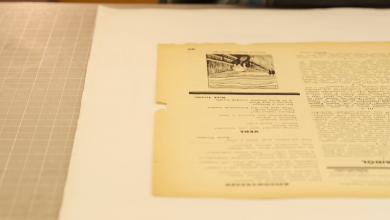In David Guterson’s New Novel, a Criminal Trial Is All in the Family

THE FINAL CASE
By David Guterson
“The Final Case” is a tender, closely observed and often surprising novel that achieves the intimacy — and occasional randomness — of a diary. David Guterson, best known to many as the author of the magical “Snow Falling on Cedars,” again places a criminal trial at the center of his novel. But readers anticipating another artful courtroom thriller like Guterson’s prior book may find their expectations upended. In this novel, Guterson is not really writing about who done it, or even why. His subject is family love, and its silent passions grip the reader like a steady, racing current.
The unnamed narrator is — or was — a writer of fiction. As he puts it, “I’ve been doing it for a long time, I’m not interested anymore, there are other things in life, I’d be repeating myself — I became aware that thoughts like these, uninvited, unexpected, persistent and gnawing, were proliferating in my head, and outweighed any urge to write fiction, at first by a little, so that I stayed in the habit, but then by a lot, so that I quit.”
With little to do but sip tea and read in a cafe owned by his sister, the former writer has no excuses when his 83-year-old father, Royal, still a practicing criminal defense lawyer, cracks up his car and asks his son to drive him to work. While the wrecked car seems like a creaky authorial convenience, we soon recognize that the son cherishes the chance to observe his father’s professional life up close as it nears its end.
Thus we accompany Royal when he travels to serene Skagit County north of Seattle, to visit a potential pro bono client. Betsy Harvey, a 41-year-old mother of seven, whose “eyes simmered with potent outrage,” and her husband, Delvin, are devout and harbor their own interpretations of what God expects of a parent. Together they have been charged with an ugly and heartbreaking crime, imposing unrelentingly cruel discipline on Abeba, the sixth-grade girl they adopted from Ethiopia and whose death by exposure they are alleged to have caused. Despite the repulsive nature of the offense, Royal signs on. “If you convict someone because they’re abhorrent, and not because they broke the law, you might as well live in a dictatorship. And who wants that?”
Eventually, the son becomes not only his father’s chauffeur, but his chief investigator in preparing Mrs. Harvey’s defense. He attends Royal’s interview with Betsy Harvey’s mother, who says her daughter has been charged only because “they hate us ’cuz we’re Christian and white.” Under a ruse that he is searching for accurate detail for a novel, the narrator visits the Boeing plant where Delvin was employed. There, our narrator learns that fellow millwrights regard Delvin as a solid worker but a man of inflexible and extreme religious views that he was too eager to press on others. And because Royal has no idea how to extract data from a thumb drive, the narrator reviews Abeba’s painful history: She was an engaging and talented girl whose uncle gave her up in anguish but with the familiar belief that America offered the promise of “a better life.”
Unfortunately, this is not what the little girl, renamed Abigail by her adoptive parents, found. Guterson presents vivid and wrenching testimony showing how Abigail was often denied meals, forced to live in a closet, periodically beaten with plumbing wire and ultimately ignored as she marched naked through the cold one night until she died.
Guterson is the kind of writer about whom people used to say, when there were such things, “I’d read him, even if he wrote the phone book.” Every sentence has a graceful weight and meter and is illumined by a subtle intelligence that makes his descriptions arresting but never showy. Royal’s house is “full of failed windows with permanently obscured panes, and hemmed in by bushes irregularly trimmed.” Guterson also exhibits a perfect ear for the political rants that so many Americans feel authorized to engage in from both sides of the political spectrum.
Yet for all these incidental pleasures, with the first 70 percent of the novel hewing so closely to the details of the Harveys’ case, it is startling, even disorienting, when the trial comes to a precipitous close, and the case receives only passing mention in the remaining pages. Slowly, the realization dawns that this novel was never about the Harveys, or about Abeba, or the outcome of a trial. The book is about Royal. His final case matters most because that is what he wants to be doing, even as he knows his days are dwindling. Royal tells his son, “I know there are people who say, ‘On your deathbed you’re not going to wish you’d worked more, you’re going to wish you’d gone to Zanzibar to watch the sunset. And loved your loved ones more.’ … Well, I’m not going to argue about Zanzibar, but, as for loving people, that doesn’t have to be mutually exclusive with work, does it?” The quiet argument is that the values and passion that animate the professional lives of people like Royal are part and parcel with why others adore them.
“The Final Case” has multiple real-world sources. In an author’s note, Guterson writes, “In 2011, a girl adopted by a family in Skagit County, Wash., died of hypothermia. Two years later … I attended the trial [of her adoptive parents], and conducted research and interviews in both the U.S. and Ethiopia.” Despite striking resemblances between the fictional case and the real one, Guterson says they “are only parallels, not reality itself.” Perhaps he would say the same about parallels between Royal and Guterson’s own father, Murray, a revered criminal defense lawyer in Seattle who died in 2013. Indeed, even our narrator, who has given up on fiction, may be a stand-in for Guterson, who, until this book, had not published a novel in a decade.
Yet the fact that Guterson has chosen to fuse nonfiction elements with a work of the imagination seems to bear tribute to the power of creative acts — in particular their ability to render meaning from the shock of incomprehensible events.
Ultimately, the mystery at the center of “The Final Case” is not about innocence or guilt, but about how one family’s profound attachments can stand alongside breathtaking cruelty in another. Part of the answer, Guterson seems to suggest, is the degree to which some Americans feel at liberty today to live in a relentless state of rage and grievance, rather than with the shared sense of quiet decency that once knitted our communities together.




